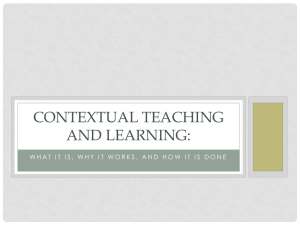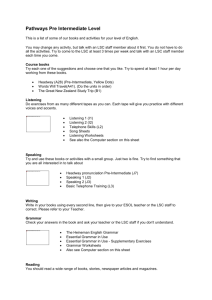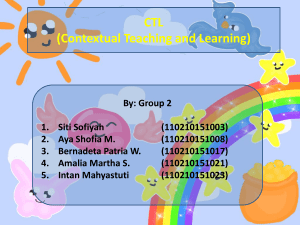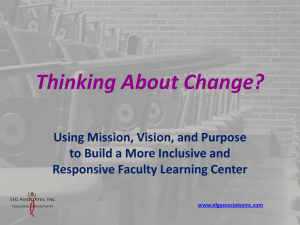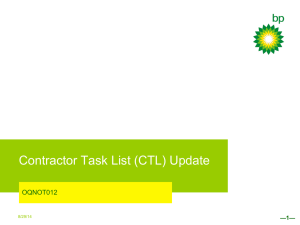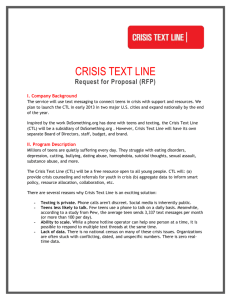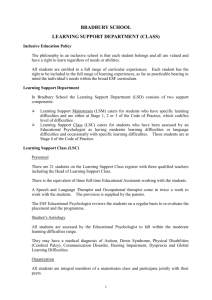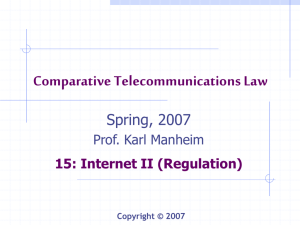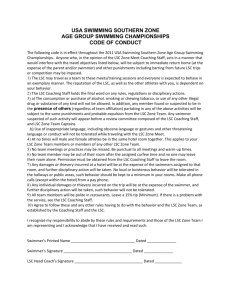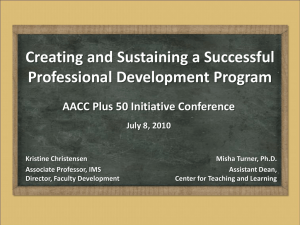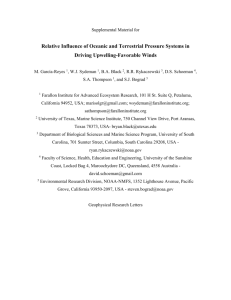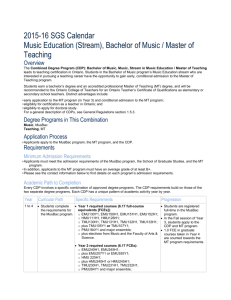Fostering Student Success through in
advertisement
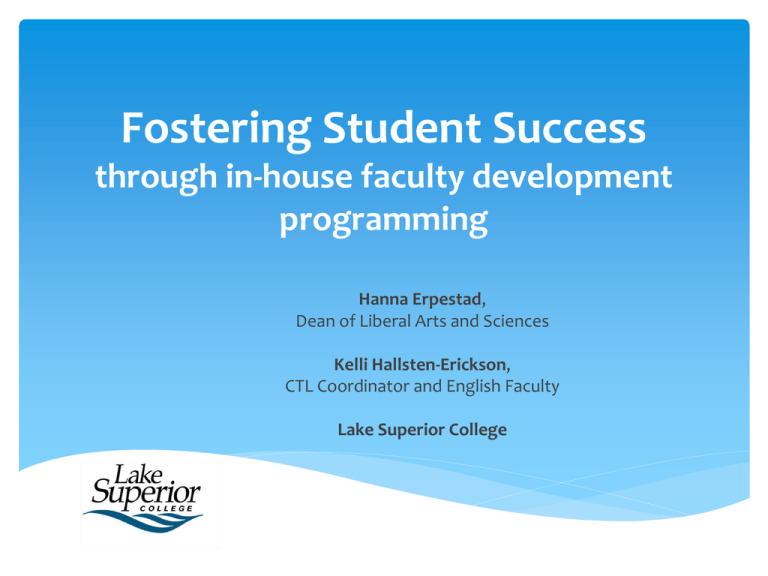
Fostering Student Success through in-house faculty development programming Hanna Erpestad, Dean of Liberal Arts and Sciences Kelli Hallsten-Erickson, CTL Coordinator and English Faculty Lake Superior College Our Mission Because Lake Superior College believes that an investment in faculty is an investment in our students, the Center for Teaching and Learning develops, facilitates, and promotes a comprehensive professional development program for faculty designed to meet the ever-changing academic environment. (9/27/12) Connections to LSC Initiatives Master Academic Plan A commitment to provide faculty and staff professional development, including systemic orientation and mentoring, improving online instructional capabilities and effectively using feedback FY12-FY15 Strategic Plan 4 goals addressing professional development of instructors teaching in all delivery modalities, including new faculty mentoring Connections to Charting the Future #1: Dramatically increase the success of all learners, especially those in diverse populations traditionally underserved by higher education. Strategy: Implement research-based best practices for student success. At LSC: Constant use of research-backed strategies (Example: FIG text Envisioning Equity) Strategy: Partner with diverse communities...to create welcoming learning environments that expand access to educational pathways and increase student success. At LSC: All-campus book read, a Muslim student forum Connections to Charting the Future #4: Expand the innovative use of technology to deliver high quality online courses, strengthen classroom instruction...and provide more individualized learning and advising. Strategy: Enhance student educational experiences by infusing emerging technologies into courses and student support services and by developing an integrated, collaborative approach to support professional development of faculty and investment in instructional design. At LSC: Consistent practice of offering sessions dealing with technology and instructional tools. LSC POET®. Structure Faculty nominate a name for the CTL Coordinator position for administrative approval Coordinator and Dean meet monthly Coordinator convenes 2-3 advisory board meetings per year Activities are planned based on input from across campus How much does this cost? CTL coordinator is given 9 credits of release The CTL supply budget has never exceeded $5000 Budget monies are spent with the oversight of the advisory board The Dean of LAS has final approval of expenditures Annual Events Excellence in Teaching Festival Faculty Inquiry Group (FIG) Faculty Duty Days Stand alone brown bag-style sessions All-Campus Book Read World Travelers Series Delivery Modes The traditional breakout session Plenary sessions “Speedy” sessions D2L discussion boards Ongoing “core group” discussions (FIG) Overarching Themes Each year has a theme - Suggested by the advisory board and connected to survey results and work plan AY14 theme: Serving Students with Complex Needs Tracking and Data Tracking attendance using STARS The Annual Survey Most satisfaction comes from the format of sessions, opportunity to network, and learning new teaching strategies. Professional Development and Sabbatical Plans Collaboration Internal Library, Intercultural Center, Student Life, Customized Training, Workforce Development, IT, eCampus team, Learning Center, Counselors, Disability Services, Online Faculty Development Coordinator and Online Course Peer Review Coordinator External Service-Learning Duluth, other MnSCU colleges The Center for Faculty Innovation The CFI is a physical space on campus - Library of professional development texts and materials A lounge A copier/printer A conference room The offices of the CTL coordinator & the Instructional Technologist CFI Space CFI Space The CFI Online D2L shell that hosts a variety of materials, mostly from sessions, posted for ongoing viewing Online discussions, especially during the Excellence in Teaching Festival (next year: connected to the FIG) Special Initiatives New Faculty Orientation New Faculty Mentoring Program Online Professional Development Committee POET® Revision Committee LSC Campus Climate Committee Challenges Inheriting a lackluster program & finding a new leader MnSCU CTL office closes Validating the local CTL work to the new President Moving away from administratively-assigned duty days to take advantage of all optional duty days The Numbers An average of 7 formal monthly meetings per month in the CFI More than doubled annual offerings and attendance numbers after the MnSCU CTL office closed FY14: 52 professional development sessions, 590 acts of participation The Payoff: Ultimately, through the support of administration and the coordinative efforts of the CTL coordinator, but mostly because of the faculty, it is clear that LSC is rich with knowledge and the desire to share that knowledge with others: We are a model for teaching and learning for our students.
